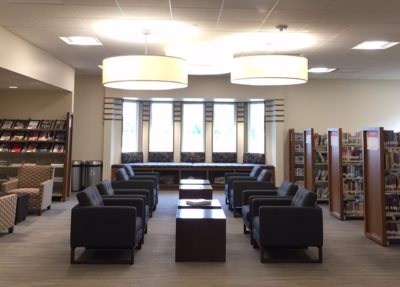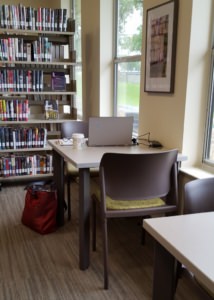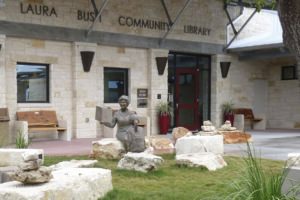
As a page turns in your favorite book revealing plot twists and waves of change, libraries themselves are experiencing radical systemic changes. According to the American Library Association (ALA) “Academic, public and school libraries are experiencing a shift in how they are perceived by their communities and society. No longer just places for books, libraries of all types are viewed as anchors- centers for academic life and research and cherished spaces.”

This shift is consistent across the country as libraries evolve to accommodate technological advancements and community needs. The Westbank Community Library District in Austin, Texas is one such center of literary and community growth. This Library District, which consists of the Westbank Library and the Laura Bush Library, served as a melting pot for m
ental flexibility, self-awareness and global guidance as I wrote my latest book: Access to Asia: Your Multicultural Business Guide. Several of us sat down with Mary Jo Finch, The Westbank Libraries Director, to discuss the importance of libraries for local communities and the inspiration they instill.
Mary Jo told us that libraries work in many ways to help every person who walks through the library doors. Help occurs in all aspects of life through the “1000 programs a year where people learn about health topics, finance, parenting and technology, or where they bring their children to develop discovery and literacy skills.” Programs ranging from community garden projects and quilters groups, to Sensory Storytime for those on the Autistic Spectrum, and hiking trails on library property serve as diverse examples of the wide range of programs offered through the Westbank Community Library District. Mary Jo adds, “The library is the one place in a community where belief systems, class, and background are left at the door and everyone is welcome.”

In a world where almost any piece of information is at your fingertips through the internet, why is it important for libraries to be preserved? Mary Jo answers focusing on three perspectives: Resources, Community, and Library. “A lot of resources are behind pay-walls. Libraries buy shared access that results in overall savings for the community.” Mary Jo adds from a community standpoint; “People truly need each other, and there is often a lack of safe and comfortable places for people to connect, meet and dive below the surface on important topics. Everyone is welcome at the library. Everyone needs help from time to time and a library is a neutral third party place.” From a pure, library standpoint, Mary Jo notes that libraries are imperative as “Literacy is essential. Libraries are where children start their path to reading. Libraries are where we develop our own thoughts and self-educate.”

It’s been recently noted that books are a new status symbol as the world becomes more digital, as they highlight your knowledge and the investment you’ve made in the book itself. Mary Jo concurs. “Nothing compares to reading a book. It’s an intimate experience to sit down with a book in your lap. The way the light touches the page and the shadow falls down the middle. We learn about ourselves from the moment we open the book. We start a relationship with that story. We develop our own thoughts and dig deeply as we explore the pages.” Mary Jo adds that books are valuable in the way they connect individuals. “So much of what we do separates us from people, but when you see a person reading a book you love, you are instantly connected.”
Whether you are looking to fall in love with a new story, connect with your community, or write a book in the comfortable and welcoming atmosphere, remember the local community at the nearest library. Thank you to the Westbank library and Mary Jo Finch for your help with my own research. Find a library in your area, spend some time creating memories, writing down your dreams, and getting lost in the beautiful pages.
As Mary Jo concluded our interview: “Who wants to live in a community without a library?”
Sharon Schweitzer, J.D., is a cross-cultural consultant, an international protocol expert and the founder of Protocol & Etiquette Worldwide. She is accredited in intercultural management, is the resident etiquette expert for CBS KEYE We Are Austin, popular on-air contributor, regularly quoted by BBC Capital, Investor’s Business Daily, Fortune, Inc., The New York Times, The Vancouver Sun, and numerous other media. She is the best-selling, international award-winning author of Access to Asia: Your Multicultural Business Guide, named to Kirkus Review’s Best Books of 2015. Sharon co-wrote this article with Chloe Ropner, Shannan Bloomstrand and Savin Weera.


Leave A Comment